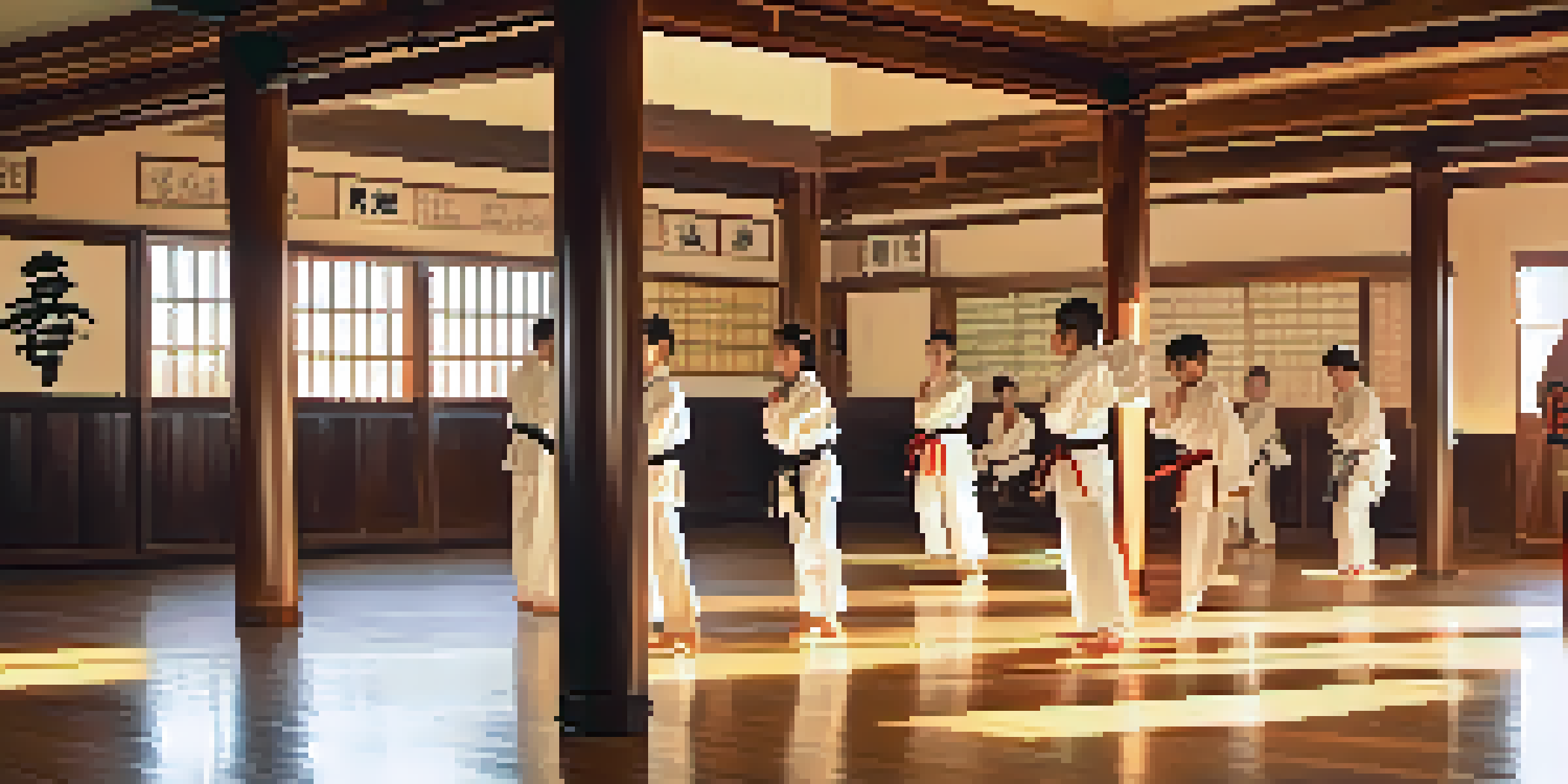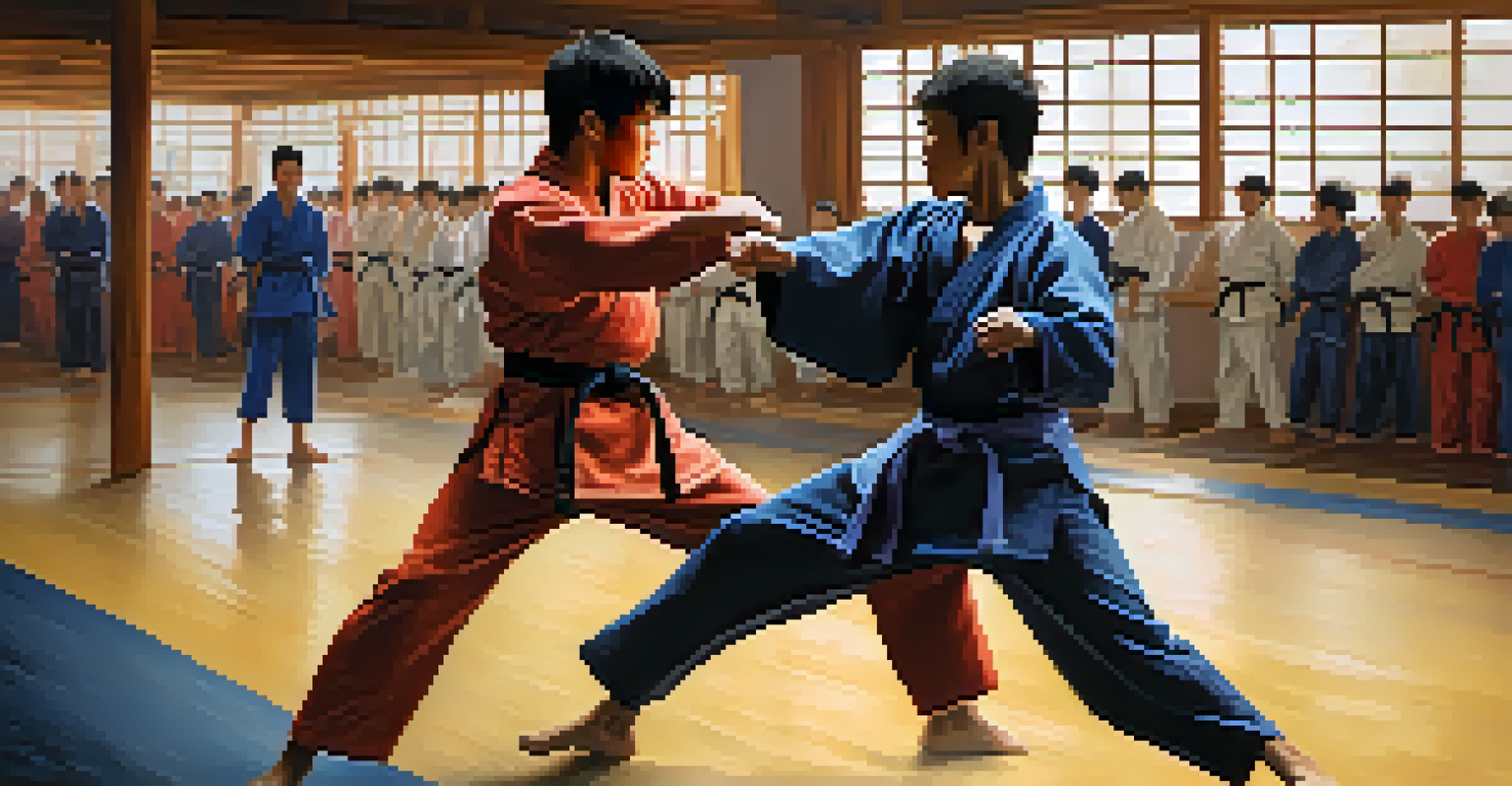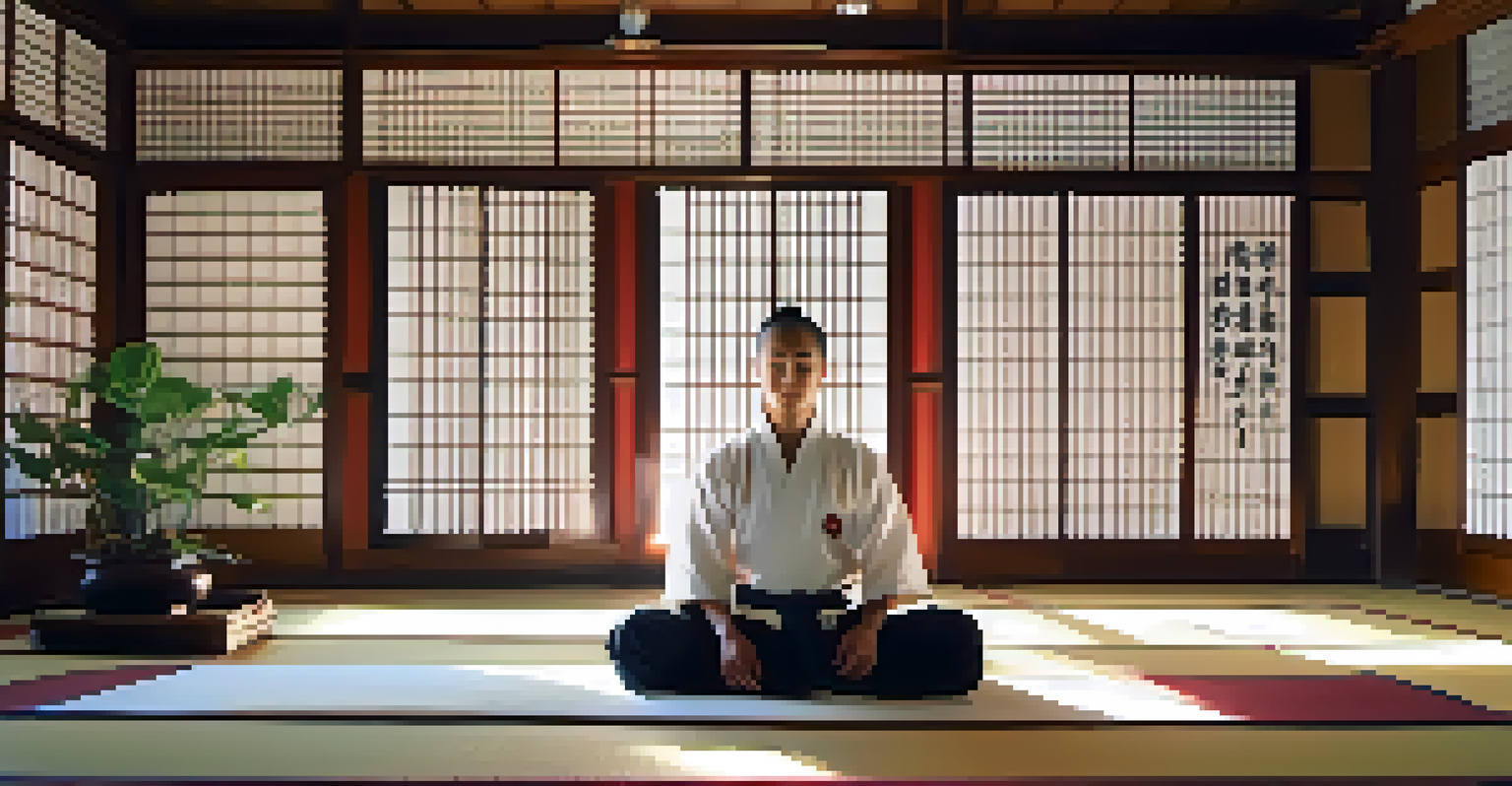Martial Arts as a Tool for Enhancing Emotional Intelligence

Understanding Emotional Intelligence in Everyday Life
Emotional intelligence (EI) refers to the ability to recognize, understand, and manage our own emotions while also being able to empathize with others. It's a vital skill in today’s fast-paced world, influencing our relationships and decision-making. Cultivating EI can lead to improved communication, better teamwork, and greater personal well-being.
Emotional intelligence is not about being nice. It's about being aware of your feelings and knowing how to manage them.
Many people think of EI as something we're born with, but the truth is, it can be developed over time. Engaging in activities that promote self-awareness and emotional regulation is key to enhancing this skill. Martial arts, with its unique blend of physical and mental training, offers an effective avenue for fostering emotional intelligence.
By learning to control our emotions during high-pressure situations, martial arts practitioners can cultivate a deeper understanding of themselves and others. This journey involves not just physical strength, but also an emotional and psychological transformation.
The Role of Discipline in Martial Arts Training
Discipline is a cornerstone of martial arts training; it teaches practitioners the importance of commitment and persistence. When students commit to regular practice, they not only improve their physical abilities but also sharpen their mental focus and emotional resilience. This structured approach to training translates into everyday life.

As students face challenges and setbacks in their martial arts journey, they learn to persevere through frustration and disappointment. This process of overcoming obstacles fosters emotional growth and enhances their ability to navigate emotional challenges outside the dojo. The discipline gained in martial arts can lead to improved emotional regulation.
Emotional Intelligence Can Be Developed
Emotional intelligence is not innate; it can be cultivated through practices like martial arts that promote self-awareness and emotional regulation.
Ultimately, the discipline cultivated in martial arts encourages practitioners to set and achieve personal goals. This sense of accomplishment can significantly boost confidence and self-esteem, which are crucial components of emotional intelligence.
Building Self-Awareness Through Mindful Practices
Self-awareness is the foundation of emotional intelligence, and martial arts training emphasizes mindfulness as a critical component. Practitioners engage in focused training, which requires them to be present and fully aware of their body movements and emotions. This heightened sense of awareness can lead to greater insights into one’s emotional triggers and reactions.
The greatest weapon against stress is our ability to choose one thought over another.
Mindfulness exercises, such as meditation and breathing techniques, are often integrated into martial arts practices. These techniques help students slow down and reflect on their thoughts and feelings, thus enhancing their self-awareness. By becoming more attuned to their internal state, martial artists can better understand how their emotions affect their actions.
As martial artists learn to observe their emotions without judgment, they develop a more balanced perspective. This ability to reflect can lead to improved emotional responses, fostering healthier interactions with others, both on and off the mat.
Empathy: Understanding Others Through Sparring
Sparring is a fundamental aspect of martial arts that not only builds physical skills but also enhances empathy. During sparring sessions, practitioners must anticipate and react to their partner's movements, which fosters a deeper understanding of another person's emotions and intentions. This practice helps develop the ability to put oneself in someone else’s shoes.
As martial artists engage in controlled combat, they learn to read body language and emotional cues, which are crucial for effective communication. This not only strengthens their martial arts skills but also builds emotional connections with others, creating a sense of camaraderie among students. The shared experiences during sparring cultivate mutual respect and understanding.
Discipline Enhances Emotional Growth
The discipline learned in martial arts fosters perseverance and resilience, which are essential for managing emotional challenges in everyday life.
Through sparring, martial artists learn that every action has a reaction, teaching them to consider the impact of their words and actions on others. This awareness is a key element of emotional intelligence, as it encourages individuals to navigate social situations with greater sensitivity and insight.
Resilience: Overcoming Challenges on the Mat
Martial arts is all about facing challenges head-on, which is a perfect metaphor for life’s emotional hurdles. Practitioners often encounter difficult techniques, rigorous training sessions, and the occasional setback in their progress. Each of these experiences builds resilience, a vital aspect of emotional intelligence, enabling individuals to bounce back from adversity.
As students learn to face physical challenges, they also gain the mental fortitude to handle emotional difficulties. This sense of resilience translates into everyday life, empowering individuals to tackle stressors with a more positive outlook. The ability to persevere through difficulties helps build a strong emotional foundation.
Resilience fosters a growth mindset, encouraging martial artists to view failures as opportunities for learning rather than setbacks. This shift in perspective can significantly enhance emotional adaptability, allowing individuals to navigate through life’s ups and downs with greater ease and confidence.
Community and Connection: The Social Aspect of Martial Arts
Martial arts training often takes place in a supportive community, which plays a crucial role in developing emotional intelligence. This environment fosters connection, encouraging students to share experiences and support one another through their journeys. Building relationships within the martial arts community can enhance social skills and emotional awareness.
The camaraderie developed in training sessions helps students learn the importance of teamwork and communication. Practitioners celebrate each other’s successes and provide encouragement during tough times, which reinforces empathy and understanding. This strong sense of community contributes to a positive emotional environment.
Community Strengthens Emotional Skills
The supportive environment of martial arts training builds connections that enhance empathy, teamwork, and emotional awareness among practitioners.
Moreover, the shared experiences in martial arts create bonds that extend beyond the dojo. These connections can lead to long-lasting friendships, which further enrich emotional intelligence by providing additional opportunities for emotional support and understanding in various life situations.
Applying Martial Arts Lessons to Everyday Emotional Challenges
The lessons learned in martial arts can significantly impact how we navigate emotional challenges in our daily lives. The skills of self-awareness, self-regulation, empathy, and resilience gained through training can be applied to various situations, from personal relationships to professional environments. This practical application makes martial arts a powerful tool for enhancing emotional intelligence.
For instance, the discipline acquired through martial arts can help individuals manage stress and maintain composure during difficult conversations. Similarly, the empathy developed during sparring can improve interpersonal relationships by fostering better communication and understanding. Practitioners can draw on these experiences to respond thoughtfully rather than react impulsively.

Ultimately, martial arts serves as a valuable framework for personal growth. By integrating these lessons into daily life, individuals can enhance their emotional intelligence, leading to healthier relationships and a more fulfilling life.